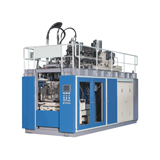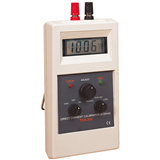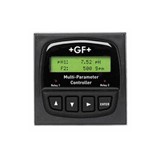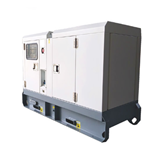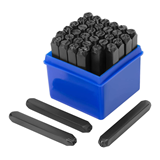John Wesley Hyatt pioneered this manufacturing process. He was an American inventor who worked with celluloid, considered the very first industrial plastic.
He injected hot liquid celluloid into a mold to produce billiard balls. The year was 1868. Four years later, he and his brother patented an injection-molding machine, which utilized a plunger.
The majority of today's machines, however, use a screw mechanism instead of a plunger apparatus to melt the plastic.
Thermoplastic is a type of plastic that turns hard and brittle when frozen. Applications of high heat also turn this plastic into liquid. They are not the same as thermosetting materials.
The difference is that thermosetting plastic materials are polymers that transform to a stronger form. This new form is permanent. The transformation to a new form happens through heating, chemical reaction or irradiation from an electron beam. Thermoplastic can transform back to another state.
Plastic injection molding is a process where molten plastic, through high pressure, is injected into a mold. An industrial engineer designs a plastic product's final form, what the user of the product will receive. The mold-maker or toolmaker designs the actual mold.
Aluminum and steel are the two materials most often used to make plastic injection molds. These molds receive machining to precise tolerances so the features of the desired final plastic product are to exact specifications. Quality, injection mold manufacturers do two things when making a product.
First, they make samples of the final product from the mold and put these samples through a series of trials to make sure they are viable. Second, they give some of these samples to their client to test and approve. When the approval comes, the manufacturer then produces the final product to the customer's requirements.
A mold machine for plastic forming and pressing holds the mold in which plastic products receive shaping. These machines generate very high levels of pressure for clamping. Some plastic injection molding machines can produce from 25 to 400 tons of clamping force. The molds come in two parts to enable a split, allowing the formed product to come out.
Plastic injection molding is a fast, automated process. It allows for mass production of high-tech engineering products and inexpensive consumer products. Everything from small toys, bottle caps and pens to outdoor patio furniture and car body panels result from plastic injection molding. Even DVDs, telephone handsets and disposable razors come from this industrial process.
Consistency is of prime importance in mass production. Plastic injection molding machines use computer technology to make sure this is so. Today's machines have built-in computers, which operate on sensor-fed data to control all aspects of the machines' work. This ensures every piece produced is identical for the modern marketplace.
The common substances used to make thermoplastics through plastic injection molding are nylon, polycarbonate, polypropylene, acrylonitrile-butadiene-styrene and polystyrene. An injection-molding machine has a hopper, which houses these materials. Because of the costs of injection mold machinery, it is a process suited to producing large volumes of products. This makes the whole process from start to finish financially viable for the manufacturer and the customer.
If you are in the selling business, any manufacturer you choose to produce your plastic product should use the latest technology as much as possible. This will lessen the chances of defects and ensure each one of your customers receive the same high-quality product.
You want a company that performs "clean room" work, so your product comes out without any foreign objects or particles imbedded inside. You also want a manufacturer that will give you the first run samples of your plastic product to check out before you make a final decision to go ahead with full-scale manufacturing.
It is also wise to choose a company that is a one-stop shop for your plastic injection molding needs. It's cost efficient this way. Choose a company that does product development, designing and prototypes for a reasonable price. They're out there and ready to provide you with the services you need to get your plastic product produced with care.
- Suppliers
- New to IndustrySearch? Book a Demo
- Advertise with us
- Login
- Email Marketing
- Buyers
- Get Quotes
- Articles & Ideas
- Login
- Subscribe to newsletter
- My Details
- Get Quotes
- Automation & Control
- Automotive Workshop Equipment
- Commercial Cleaning Equipment & Supplies
- Construction Equipment & Heavy Machinery
- Conveyor Systems & Components
- Electrical & Power Generation Equipment
- Electronic Components
- Farming & Agriculture
- Food & Beverage Processing
- Forklifts & Forklift Attachments
- Hydraulic & Pneumatic Equipment
- Industrial Materials, Tools & Components
- Industrial Pumps
- IT Hardware & Industrial Computing
- IT Software & Applications
- Laboratory Equipment & Instruments
- Manufacturing & Industrial Equipment
- Material Handling & Lifting Equipment
- Metalworking & Machining
- Mining Equipment & Machinery
- Packaging & Labelling Machinery
- Pallet Handling Equipment
- Personal Protective Equipment
- Security & Surveillance
- Test & Measurement
- Transport & Logistic Equipment
- Warehouse Storage, Shelving & Racking
- Waste Treatment & Environmental Management
- Welding Machines & Accessories
- Woodworking & Joinery Machines
- Workplace Equipment
- Workplace Safety Equipment
- Get Quotes
- Automation & Control
- Automotive Workshop Equipment
- Commercial Cleaning Equipment & Supplies
- Construction Equipment & Heavy Machinery
- Conveyor Systems & Components
- Electrical & Power Generation Equipment
- Electronic Components
- Farming & Agriculture
- Food & Beverage Processing
- Forklifts & Forklift Attachments
- Hydraulic & Pneumatic Equipment
- Industrial Materials, Tools & Components
- Industrial Pumps
- IT Hardware & Industrial Computing
- IT Software & Applications
- Laboratory Equipment & Instruments
- Manufacturing & Industrial Equipment
- Material Handling & Lifting Equipment
- Metalworking & Machining
- Mining Equipment & Machinery
- Packaging & Labelling Machinery
- Pallet Handling Equipment
- Personal Protective Equipment
- Security & Surveillance
- Test & Measurement
- Transport & Logistic Equipment
- Warehouse Storage, Shelving & Racking
- Waste Treatment & Environmental Management
- Welding Machines & Accessories
- Woodworking & Joinery Machines
- Workplace Equipment
- Workplace Safety Equipment
Trusted by 1,000,000+ Australian industrial buyers
Buyers
- Discover products & solutions
- Login
- Subscribe To Newsletter
- Browse All Products
- Read Articles
Suppliers
Advertise
- Promote your products & solutions
- New to IndustrySearch? Book a Demo
- Login / Forgot Password
- Advertise Your Products
- Success Stories
- Email Marketing
- Suppliers
- Advertise with us
- Login
- Email Marketing
- Buyers
- Get Quotes
- Articles & Ideas
- Login
- Subscribe to newsletter
- My Details
Get Quotes
- Automation & Control
- Automotive Workshop Equipment
- Commercial Cleaning Equipment & Supplies
- Construction Equipment & Heavy Machinery
- Conveyor Systems & Components
- Electrical & Power Generation Equipment
- Electronic Components
- Farming & Agriculture
- Food & Beverage Processing
- Forklifts & Forklift Attachments
- Hydraulic & Pneumatic Equipment
- Industrial Materials, Tools & Components
- Industrial Pumps
- IT Hardware & Industrial Computing
- IT Software & Applications
- Laboratory Equipment & Instruments
- Manufacturing & Industrial Equipment
- Material Handling & Lifting Equipment
- Metalworking & Machining
- Mining Equipment & Machinery
- Packaging & Labelling Machinery
- Pallet Handling Equipment
- Personal Protective Equipment
- Security & Surveillance
- Test & Measurement
- Transport & Logistic Equipment
- Warehouse Storage, Shelving & Racking
- Waste Treatment & Environmental Management
- Welding Machines & Accessories
- Woodworking & Joinery Machines
- Workplace Equipment
- Workplace Safety Equipment
Get Quotes
- Automation & Control
- Automotive Workshop Equipment
- Commercial Cleaning Equipment & Supplies
- Construction Equipment & Heavy Machinery
- Conveyor Systems & Components
- Electrical & Power Generation Equipment
- Electronic Components
- Farming & Agriculture
- Food & Beverage Processing
- Forklifts & Forklift Attachments
- Hydraulic & Pneumatic Equipment
- Industrial Materials, Tools & Components
- Industrial Pumps
- IT Hardware & Industrial Computing
- IT Software & Applications
- Laboratory Equipment & Instruments
- Manufacturing & Industrial Equipment
- Material Handling & Lifting Equipment
- Metalworking & Machining
- Mining Equipment & Machinery
- Packaging & Labelling Machinery
- Pallet Handling Equipment
- Personal Protective Equipment
- Security & Surveillance
- Test & Measurement
- Transport & Logistic Equipment
- Warehouse Storage, Shelving & Racking
- Waste Treatment & Environmental Management
- Welding Machines & Accessories
- Woodworking & Joinery Machines
- Workplace Equipment
- Workplace Safety Equipment
Trusted by 1,000,000+ Australian industrial buyers

